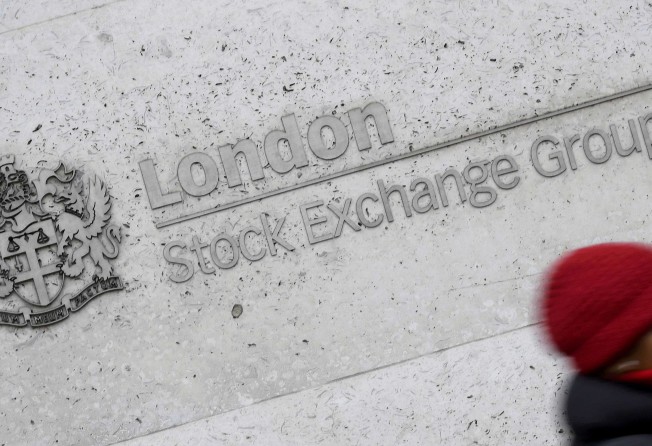China should ‘prompt’ HKEX to buy the London Stock Exchange
If China is going to play a leading role in this century then this acquisition and a good trade deal with the UK will cement its dominance of capital markets

He who can prevail in chaos is God. A historical opportunity exists for China to change the balance of power in global economics and financial markets by prevailing amid chaos through a key acquisition and trade deal.
Brexit is the beginning of the end for the European Union. Britain intends to invoke Article 50 later this month, hurtling EU members towards a complex, uncertain and acrimonious set of negotiations. Britain should expect new trade and investment terms that are almost punitive. This is especially true in financial services where passporting privileges for banks and asset managers remain uncertain.
UK banks will have to bear the onerous cost of opening new headquarters, legal structures and representative offices in Paris, Frankfurt, Luxembourg and other EU cities where they wish to do business. The future of the London Stock Exchange (LSE) as a leading global bourse, and London itself as a leading global capital market, is under threat.
In two strategic moves, China can seize the agenda for trade with the UK and the EU while taking a dominant role in global capital markets. Beijing should prompt HKEX (Hong Kong Exchanges and Clearing), the owner of Hong Kong’s stock exchange, to acquire the LSE. HKEX already owns the London Metals Exchange, which has turned out to be an overpriced acquisition and not the market game changer they hoped.
HKEX management is too inward looking and timid. Instead of making bold moves, it insists on chasing yesterday’s business. Like desperately seeking the next big Chinese tech listing when the tech wave is receding or degrading their listing standards by developing a third board for even weaker candidates that will surely lead to a corporate governance killing field.
The much vaunted “stock connects” to Shanghai and Shenzhen resulted in an orgy of posturing and pyrotechnics, but little actual capital market progress that changes the financial world. HKEX managers like their high-walled comfort zone with little competition and minimal interaction with the media.
If China is going to play a leading role in this century then this acquisition and trade deal will cement its dominance of capital markets
In addition to HKEX buying LSE, China should negotiate with Britain a favourable bilateral trade deal to ease the consequences of Brexit. China could use its leverage as one of the EU’s largest trading partners to moderate the fallout of Brexit on the LSE and London’s capital markets.
They would become a bridge to Europe giving Chinese companies unprecedented influence and access. It would reduce, if not eliminate, post-Brexit uncertainty. China could channel more companies to the LSE and offer dual listings. The acquisition would increase HKEX’s chances of winning the coveted US$100 billion listing of Saudi Arabia’s giant state oil company, Aramco, by offering access to Chinese and European markets and investors.
Does this sound farfetched? China is selling and building nuclear power plants in Britain. And HKEX already owns the London Metal Exchange. Buying the LSE is not such a fantasy because the reasons are so compelling. And they should act before someone like CME Group, an American competitor, seizes the initiative.
HKEX managers might protest that it is an independent private company that should not mingle its goals with Beijing’s foreign policy objectives. However, HKEX is actually owned by China. Can anyone imagine Beijing allowing any of the other foreign exchanges to by HKEX? China, through a kind of financial eminent domain, controls HKEX.
They have to recognise that the regulatory scene has been dramatically altered post-Brexit. Remember in 2016 the kind of regulatory concerns that scuttled Deutsche Boerse’s attempt to merge with NYSE Euronext – a deal blocked because it would have created a near monopoly on exchange traded derivatives in Europe.
Then, it is expected the European Commission will veto a proposed combination – in a ruling expected on March 29 – between Deutsche Boerse and the LSE. It effectively squashes plans to create Europe’s biggest exchange. The US$13 billion deal was unlikely to proceed because it wouldn’t comply with the divestment sought by competition watchdogs.
The much vaunted ‘stock connects’ to Shanghai and Shenzhen resulted in an orgy of posturing and pyrotechnics, but little actual capital market progress that changes the financial world
However, a deal with HKEX is less likely to create overlap issues between certain business and geographic lines, and no overlap in derivatives trading operations.
By seeing through the chaos of Brexit and Trumpist actions that are intended to be tough on trade, re-centering the countries based on nationalism and radical reductions in regulations, history-changing opportunities can be found. If China is going to play a leading role in this century then this acquisition and trade deal will cement its dominance of capital markets.
Peter Guy is a financial writer and former international banker